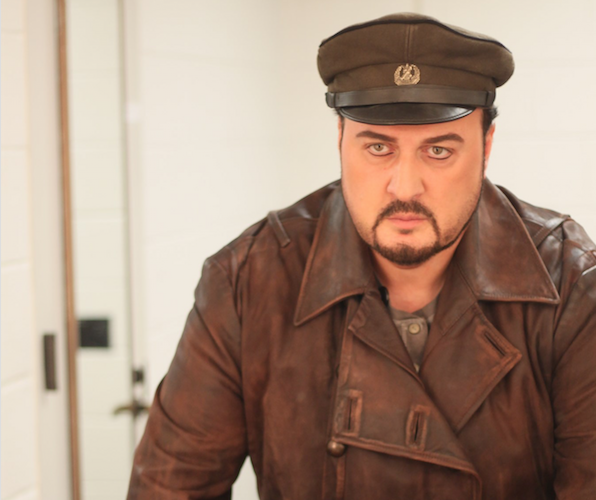
Review
|
13.10.2019
Otello – Washington 2019
In his WNO debut, the baritone George Gagnidze was a commanding presence both musically and dramatically, whose performance helps one understand why Verdi and Boito initially planned to call their opera Iago. From the frantic energy of the Act I drinking song, to his shattering interpretation of the iconic “Credo,” to the calculated guile of his conversations with Otello, Gagnidze was everything that one could have hoped for in this most complex of Shakespearean villains.
Richard Giarusso, DC Theatre Scene
There were also two respectable debuts. George Gagnidze was a solid baritone who powered out the role of Iago (…)…. perfectly operatic and effective.”
Anne Midgette, The Washington Post
The protagonist of Iago, vital pillar of this opera, was sung by George Gagnidze who remained conistent in his vocal and scenic power, a baritone with a full, round timbre and compelling stage presence.
Esperanza Berrocal, Ópera Actual
“Somehow, these three, while following Shakespeare’s plot, round it out in their finest moments, especially Georgian baritone George Gagnidze as Iago, who renders his nihilistic “Credo” with such vehemence and violence that it clarifies the character beyond merely, in Shakespeare’s words, that “I hate the Moor.”
Gary Tischler, The Georgetowner
“In a city full of dastardly characters, ranking one above the other can be tough. But for the next two week’s there’s no competition with George Gagnidze’s Iago in Washington National Opera’s (WNO) Otello. (…).Making an impressive WNO debut, Gagnidze is manipulative, cunning, and tormented as Iago. His rich baritone voice is at its zenith during his internal monologue in Act II, where we see just how far his jealousy will drive him. Toying with Thomas’ Otello, Gagnidze’s Iago turns in a
performance Frank Underwood would be proud of. He’s vile and charming, intensely focused and unapologetic.
Benjamin Tomchik, broadwayworld.com
There were also two respectable debuts. George Gagnidze was a solid baritone (…)
N.N., nach-welt.com
Playing it with satisfying menace and an interesting suggestion of the misogynistic bully, George Gagnidze is credible as the mean-spirited Iago, hellbent on driving Otello
into a jealous rage over Desdemona’s supposed infidelity. Gagnidze sings with a rich, driving baritone that delivers this ruthless man with a relentlessness that works we
Kate Wingfield, metroweekly.com
http://operagene.com/new-blog/2019/10/28/washington-national-operas-otello-that-darn-handkerchief
Also adding greatly to my enjoyment was George Gagnidze as Iago, a role he is known for internationally. His highly polished baritone serves the characterization of Iago well.
N.N., http://operagene.com
http://wellsung.blogspot.com/2019/10/otello-at-wno.html
Appearing for the first time with WNO, regular Met fixture George Gagnidze’s assertive, even baritone soared through Iago’s music. His “Credo” offered plenty of throwback vocal grandeur, filling the house with charismatic sound and tossing off those big forte flourishes with ease.
Alex, http://wellsung.blogspot.com
https://bachtrack.com/de_DE/review-otello-david-alden-russell-thomas-crocetto-gagnidze-washington-national-opera-october-2019George
Gagnidze brought power and passion to the tricky role of Iago, one of opera’s most iconic villains. His extended dialogues with Otello were musically captivating (…).
Vishnu Bachani, https://bachtrack.com
Only the Iago of George Gagnidze came off convincingly at this Otello. (…) his pointed, meaty baritone thrust the text out into the theatre and across the stage.
Harry Rose, https://parterre.com/
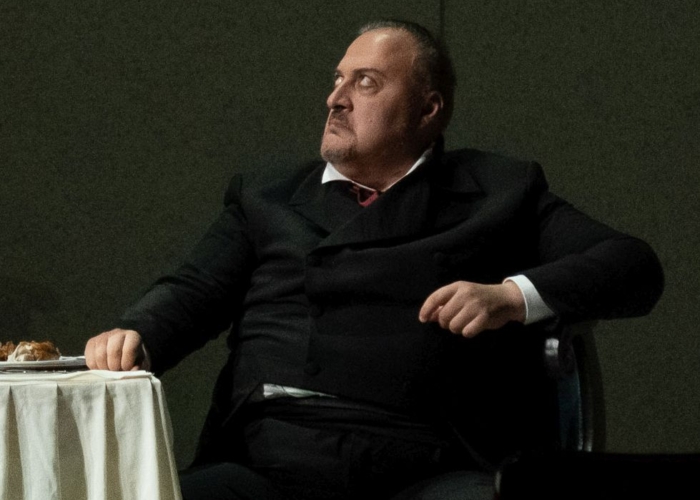
Review
|
16.10.2025
Reviews “Francesca da Rimini” in Turin
“George Gagnidze as her husband Gianciotto was excellent...” Paolo Gallarati, La Stampa
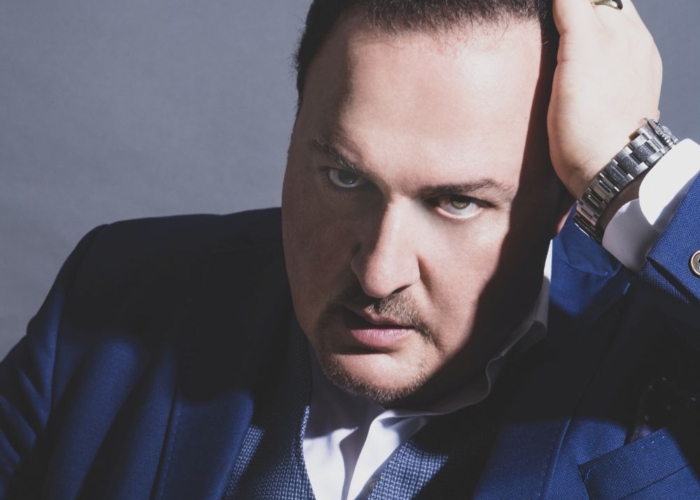
Review
|
10.10.2025
“L’Italia è la culla del mio repertorio”. L’intervista
di Giovanni Zambito - Il baritono George Gagnidze, tra le voci verdiane più autorevoli della scena lirica internazionale, si prepara a una nuova intensa stagione artistica che lo vedrà protagonista in Italia e all’estero. Dopo quasi 150 recite al Metropolitan di New York, Gagnidze tornerà nel Belpaese per tre appuntamenti di grande rilievo: Francesca da Rimini al Teatro Regio di Torino, Macbeth al Carlo Felice di Genova e Nabucco al Macerata Opera Festival. Parallelamente, sarà impegnato in importanti produzioni in Germania e Spagna, tra cui Der fliegende Holländer.
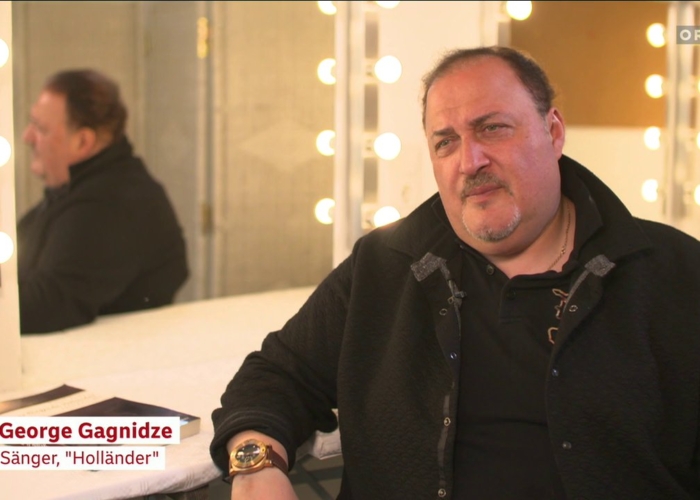
Interview
|
04.07.2025
Interview for ORF TV
In the lead-up to the premiere of Der fliegende Holländer at the Oper im Steinbruch Festival, George Gagnidze spoke with ORF TV about his role and the production in St. Margarethen. The interview, along with rehearsal footage, can be viewed here:
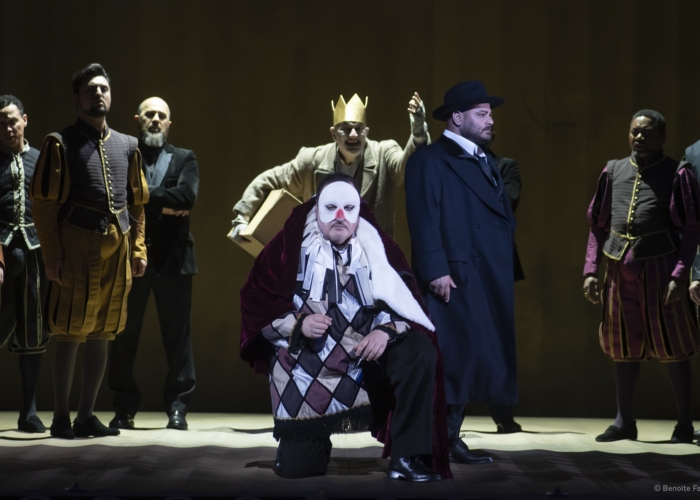
Interview
|
07.06.2025
Première Loge Interview
George Gagnidze recently spoke with Première Loge about his deep connection to Verdi and Rigoletto, the role he is currently singing at the Opéra national de Paris. The interview touches on his artistic journey, future projects, and his interpretation of one of opera’s most iconic characters.
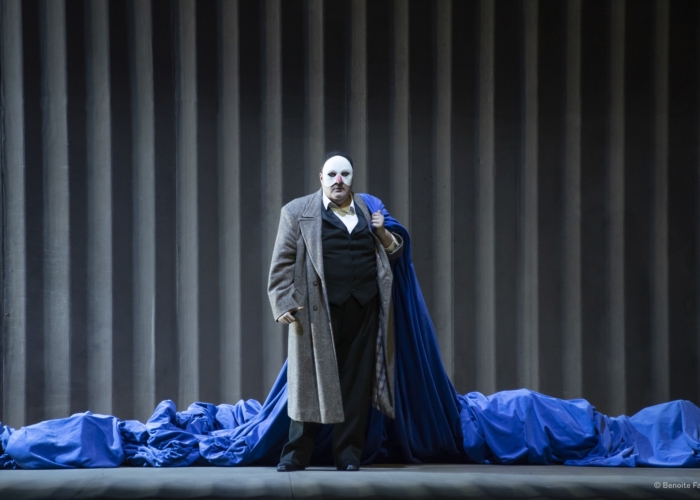
Review
|
06.06.2025
Press review “Rigoletto” in Paris, May/June 2025
“George Gagnidze, a veteran of his signature role, which he embodies masterfully with exemplary intelligence, (...) throws himself admirably into this demanding part: ... showing no noticeable signs of age ... he often reaches moments of true emotion, culminating in a faultless and particularly poignant finale.” François Lehel, Opéra




